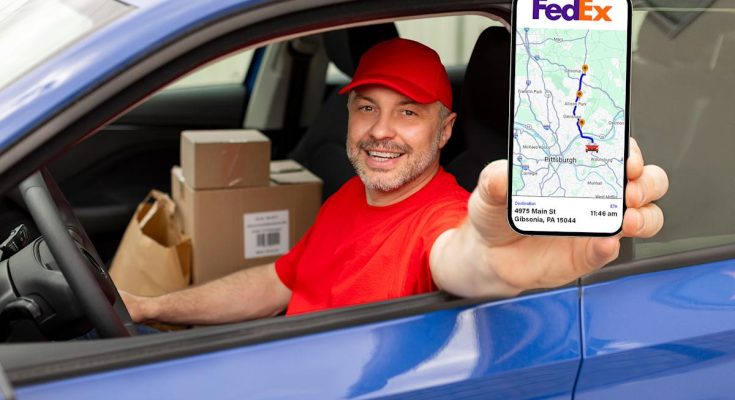By Satish Jindel
(The views expressed here are solely those of the author and do not necessarily represent the views of FreightWaves or its affiliates.)
In 2019, FedEx dropped Amazon as a customer for B2C parcels because the retailer was becoming a competitor, with its own last-mile delivery solution that mimicked FedEx Ground’s model for using independent contractors. As a result, Walmart became one of FedEx’s largest parcel customers.
Fast forward five years. Today, Walmart is rapidly expanding its own last mile delivery capacity supported by store-to-door delivery capability and an app, called “Spark,” that enables gig workers to make customer deliveries within a few miles of stores and selected two-hour windows.
Walmart is even leveraging other last-mile carriers that use gig workers including Roadie (a UPS company) and DoorDash. And for intercity transportation, which was largely handled by FedEx (NYSE: FDX), Walmart (NYSE: WMT) is also using OnTrac because of FedEx’s high costs. Many of these deliveries are siphoning off parcels that would otherwise have been delivered by FedEx from large fulfilment centers.
For FedEx to prevail in retaining and penetrating the B2C parcel volume, it will need to
reinvent its B2C delivery model. Superimposing a delivery network designed around B2B requirements, which made FedEx Ground one of the great transportation companies, is not the most cost effective approach for the B2C market. That means FedEx needs to embrace gig drivers for home delivery of e-commerce purchases.
One thing is clear: Consumers don’t pay attention to the brand name on the van bringing orders to their doorstep. Most of the time they’re not even home when the driver arrives. So why invest in a proprietary delivery operation based on brand recognition and trust when the B2C is purely cost driven?
The carrier with the lowest delivery cost will prevail.
The contractor model was set up to handle B2B packages that are bigger, heavier and require more cube — and therefore require bigger vans that consume more fuel, resulting in higher costs for B2C smaller parcels.
UPS (NYSE: UPS), with its unionized driver workforce costing about $65 per hour, is finding it difficult to compete in the ultra-lightweight B2C parcel market. FedEx’s cost for contracted drivers is much lower — $35 per hour — but it too will not be able to compete with gig-based carriers such as DoorDash, Jitsu and Veho that use crowd-sourced drivers willing to deliver small parcels with their personal vehicles and earn less than $15 per hour.



